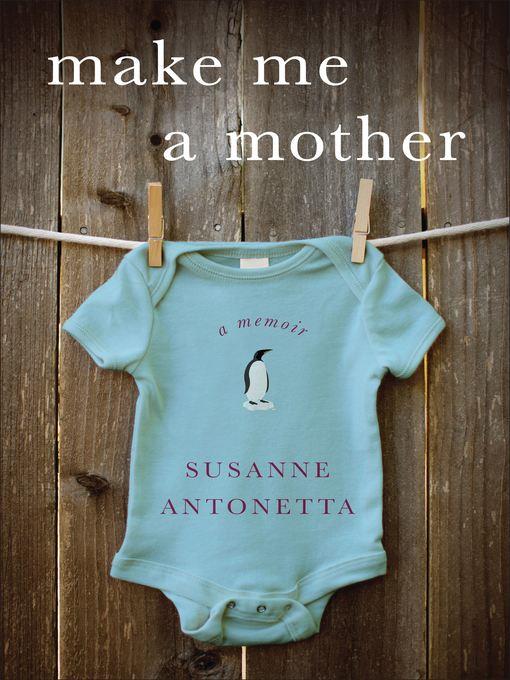
Make Me a Mother
A Memoir
- اطلاعات
- نقد و بررسی
- دیدگاه کاربران
نقد و بررسی

Starred review from December 16, 2013
A writer based in Bellingham, Wash., Antonetta (A Mind Apart) reflects thoughtfully on the many important functions of adoption as gleaned from her own experience adopting a baby boy from South Korea in 1997. Antonetta and her longtime husband, Bruce, gave up trying to conceive after an initial miscarriage: Antonetta, who came of age in the early 1970s, had bipolar disorder, and suspected mental illness in other members of the family as well as alcoholism. Having first looked at adoption of a girl from China, the couple was referred to Jin, a four-month-old Korean child whose parents (“Birth mother: heart-shaped tattoo, waitress. Birth father: good at math”) were probably very young. Alternating her journal of Jin’s flourishing development through adolescence within the family’s deepening bonds is Antonetta’s musings on the historical uses of adoption, such as its prevalence during Roman times and in Oceania, for example. Moreover, becoming a mother allowed the author to rework the thorny issues between her rather withholding mother and critical father, now aged and infirm and living in New Jersey. Antonetta’s generous, humbling take on adoption adds another layer to today’s vastly “changing landscape of family,” where couples seeking adoption don’t necessarily have infertility issues and ethnic make-up tends more toward the richly diverse.

January 15, 2014
An award-winning memoirist's moving account of how adopting a South Korean baby taught her about motherhood and love. Adoption had been an attractive option to Antonetta (A Mind Apart: Travels in a Neurodiverse World, 2005, etc.) and her husband even before they had begun trying to conceive. "Put together," she writes, "we had a genetic picture that looked like a Munch painting: bipolar disorder and alcoholism going back many generations." One painful miscarriage and several years later, the pair decided to adopt internationally and settled on Jin, an Asian boy with "dark hair and large liquid eyes." Although not born of her body, the baby nevertheless had a profound impact on Antonetta even before she held him in her arms. Maternal hormones surged through her body, and in the months before Jin arrived, her home began to look like a cross between "late Victorian [and] early Fisher-Price." Memories of her troubled past, which included drug abuse, a difficult relationship with her parents, and recurring battles with mental illness, also began to resurface. With both anxiety and joy, Antonetta plunged into motherhood knowing that it would remake her as a woman, wife and daughter. Though fear of rejection by Jin dogged her, she overcame it and learned to navigate the murky waters of transracial parent-child relationships in the process. As she felt him "grow into [her], ounce by ounce," Antonetta's notion of family also evolved. Adoption did not simply occur between adults and children. It could also happen between adults and their parents, as when the author "adopted" her aging mother and father by becoming their caregiver. In the end, Jin's otherness became the unlooked-for gift that taught Antonetta how love was as much about risk as it was acceptance.
COPYRIGHT(2014) Kirkus Reviews, ALL RIGHTS RESERVED.

February 1, 2014
Antonetta (A Mind Apart, 2005) writes so eloquently about love that her feelings resonate deep within the reader's heart. She seems, at first, to almost be apologizing for adopting a child. As if anyone needs an explanation. And it is clear that she wouldand doeswelcome this ultimate responsibility on a visceral level. Is anyone more or less a mother whether she comes to the role biologically or via adoption? Can our child be any more or less ours because of an accident of DNA? A wonderful takeaway here is Antonetta's view of the universal village it takes to raise our children. She and her husband, Bruce, were first set to adopt an American, then switched to expecting a Chinese child. And then, with nary a moment's doubt, when no Chinese child was available, they welcomed their South Korean infant son with open arms. One only wonders what Jin, now a teenager, thinks of this deconstruction of his life so far. But then he might be used to it. After all, his mom is a writer.(Reprinted with permission of Booklist, copyright 2014, American Library Association.)




دیدگاه کاربران